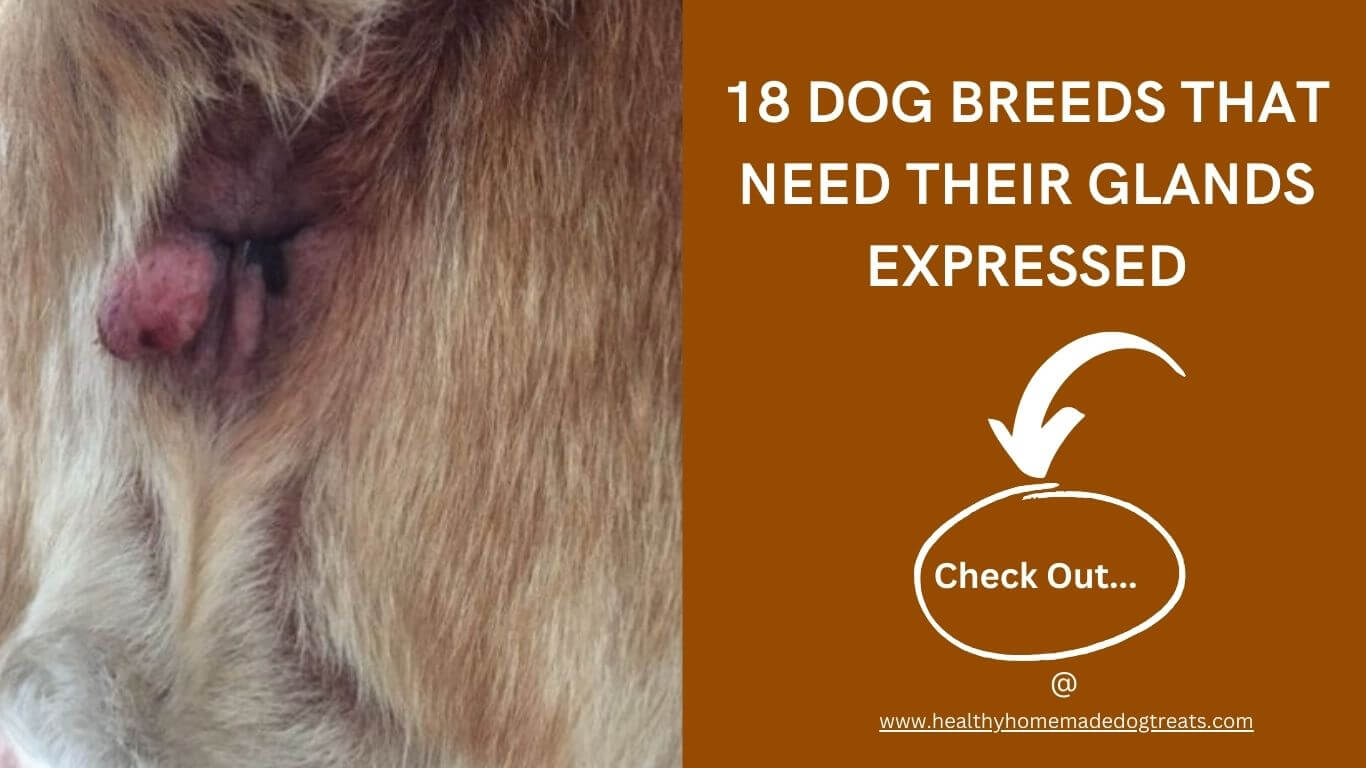Every dog expresses their anal glands naturally—this is what happens when they poop.
Occasionally, dogs may also express their glands involuntarily when they are scared, stressed, or ill.
For the most part, either of these is not a problem but it is not uncommon for some dogs to have anal gland problems.
This typically happens when the anal glands do not fully eliminate the waste during a bowel movement resulting in a strong odor, straining to defecate, blood, and even pus.
The solution to this is to have the dog’s anal glands manually expressed.
Why Do Dogs Need Anal Glands Expressed?
Not all dogs need their anal glands expressed as most of them do this naturally without any issues.
But some breeds will need their glands expressed regularly to avoid health issues and complications.
See, when a dog stops having regular bowel movements, the anal glands will not express naturally leading to the accumulation of liquids.
When this happens, the glands will thicken, which will make it hard for them to express unless with assistance.
The thickened glands will become inflamed, irritated, or even infected, which might also make it harder for your dog to pass stool.
The solution to this is to have your doggy’s anal glands expressed.
According to PetMD, once your dog suffers from anal gland problems, then you should start expressing their glands every 3-4 weeks just to ensure the problem doesn’t reoccur.
18 Dog Breeds That Need Their Glands Expressed
Here is a quick overview of dog breeds that may need their glands expressed:
1. Chihuahuas

When a Chihuahua has anal gland issues, she will start scooting on the carpet and licking her bottom more than usual.
Because of their small size, failure to express the glands may result in the eventual rapture of the glands which can not only be uncomfortable but also a serious health complication.
2. Toy and Miniature Poodles
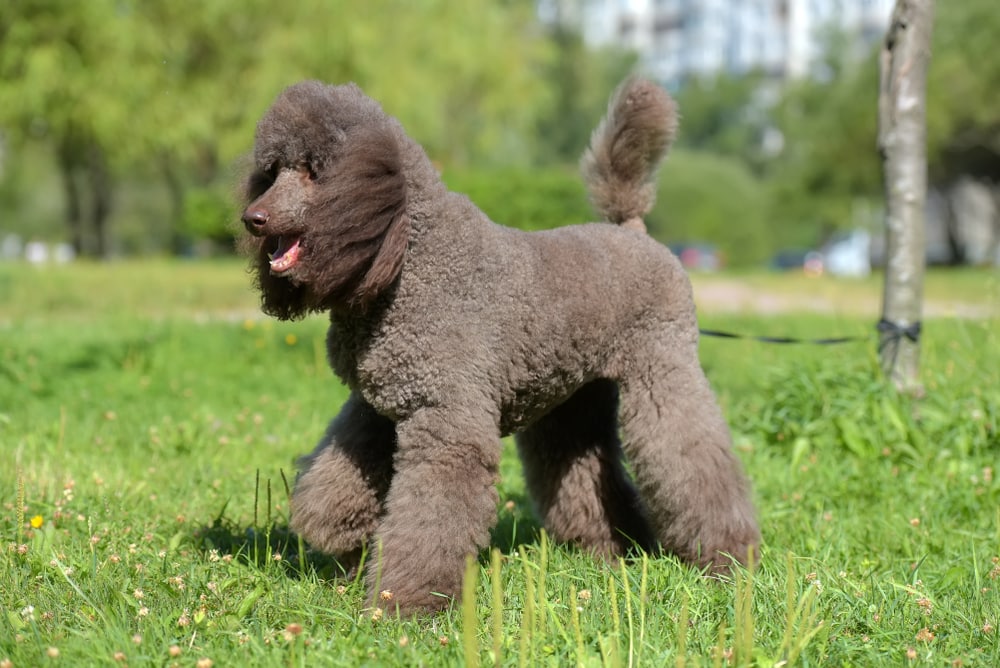
Your toy and miniature poodle’s anal glands are located right under the skin that surrounds the anal muscles.
Most groomers that tend to poodles know to express their glands as part of the grooming process to make sure they do not smell bad.
However, you can also take her to the vet for expressing if need be.
3. English Cocker Spaniel
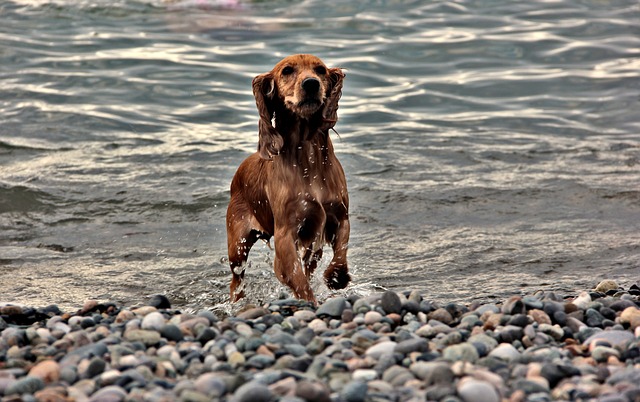
If you have any spaniel breed, then you may want to look out for anal gland issues.
However, studies show that English Cocker spaniels are more susceptible to anal sac gland issues than other spaniel breeds. This is especially common in older dogs (eight years or older).
Expressing their glands is the surest way of preventing this and other ailments.
4. Lhasa Apsos

Lhasa Apsos is another breed that is commonly associated with anal sac overfill.
As such, you will need to express their sacs or they will get raptured and infected leading to preventable diseases.
Your groomer can do this for your but you could also hack it if you know what you are doing.
5. Basset Hounds
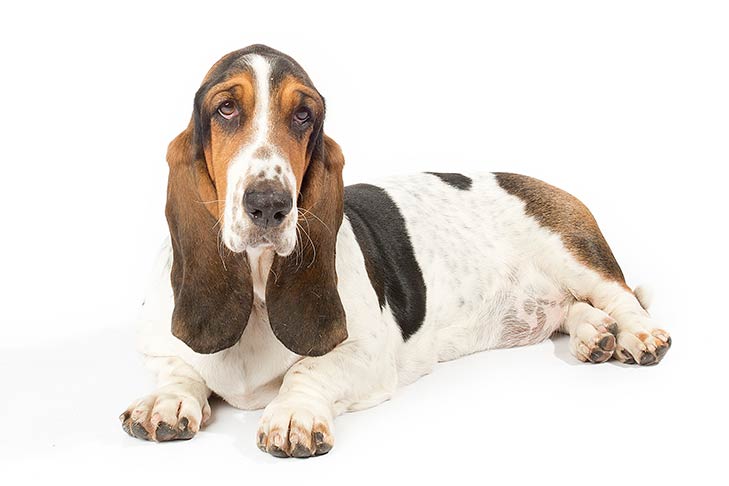
A basset hound’s anal sacs are covered in oil and sweat glands and as such, the glands produce a smelly brown liquid whenever the dog is passing stool.
This is the liquid that the bassets use to mark their territory.
Over a couple of weeks, these sacs may easily fill and will need expressing to avoid rapture or disease.
6. Beagles

Beagles are known to have anal gland issues including abscesses, tumors, impaction, and infection.
These diseases are somehow related to the breed’s inability to naturally express their anal glands and they will need your help with this.
You should, therefore, have a monthly expression schedule session for your beagle.
7. Basenji

Basenjis have sweat glands in their feet that are known to cause odors.
However, their anal sacs can be even worse.
Some Basenjis will extract their anal sacs naturally but a good chunk of them will not, which will lead to a stinking mess—and this is why you should express their glands every 3-4 weeks.
8. Pomeranian

Your Pomeranian anal sacs are located at the 4 o’clock and 8 o’clock positions.
As Dr. Jeff Nichol observes, Pomeranians are more prone to anal glands filling up due to their small size and this can be worse if your dog is overweight.
If you do not attend to the issue by helping the dog to express, she will suffer from irritation, infection, or rapture of the sacs.
9. Bichon Frisé
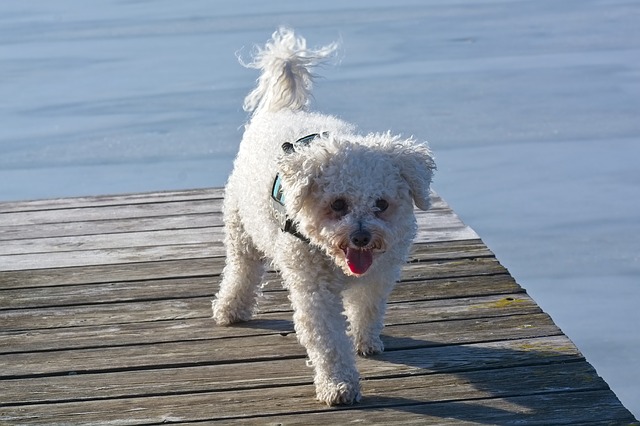
If your Bichon Frise passes stool that is too light, there is a good chance their anal glands will not empty.
Over time, this can result in impaction and abscesses that could be problematic.
To prevent this, it is recommended to express their anal glands every month.
10. Cairn Terrier
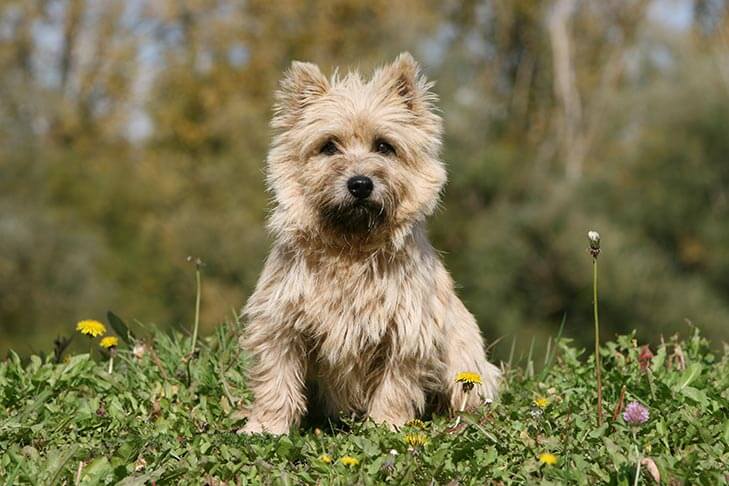
Traditionally, Cairn Terriers would express naturally, especially due to the lots of roughage that would form part of their diet.
Since most modern dog foods don’t have lots of roughage, their anal sacs will fill up in weeks and will need expressing.
While doing this monthly will suffice, you may need to do it every 2-3 weeks in older Cairn terriers because the problem will get worse with age.
11. Dachshund
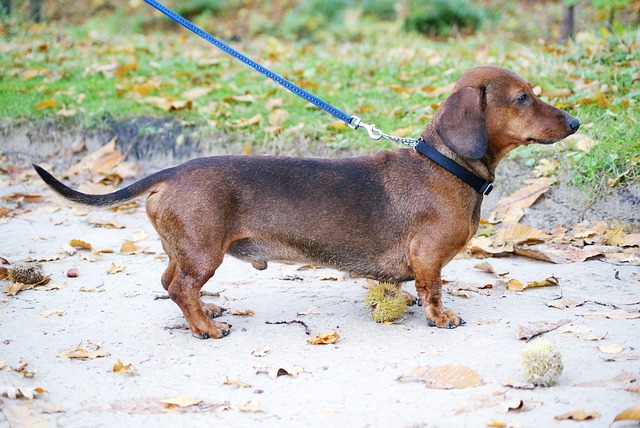
If you have a dachshund, you may have picked up on the fishy smell that comes from their behinds.
This is usually due to the liquid they express when passing stool.
As the liquid accumulates, you may need to express it or the smell will only get worse.
In addition, the bad odor, failure to express may lead to rapturing of the sacs.
12. French Bulldog

All bulldogs are prone anal gland issues but according to some vets, French bulldogs are more susceptible.
A French bulldog’s anal sacs are located at 5 and 7 o’clock and they should be emptied every 3-4 weeks to avoid rapture or any anal gland complications.
13. Jack Russell Terrier
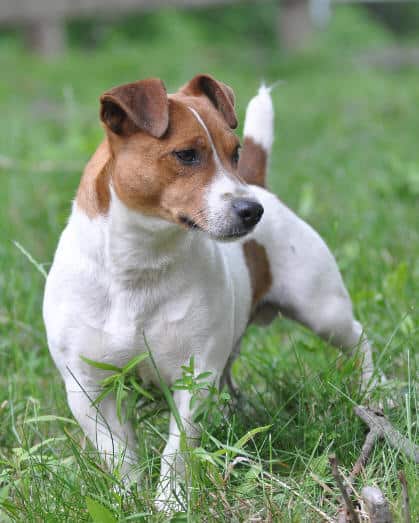
Your Jack Russell Terrier’s anal sac is located at 9 and 3 o’clock positions and they secrete and store a foul-smelling fluid that they use to mark territories.
However, these sacs seldom express full and you will need to help them do it every couple of weeks.
14. Miniature Pinscher
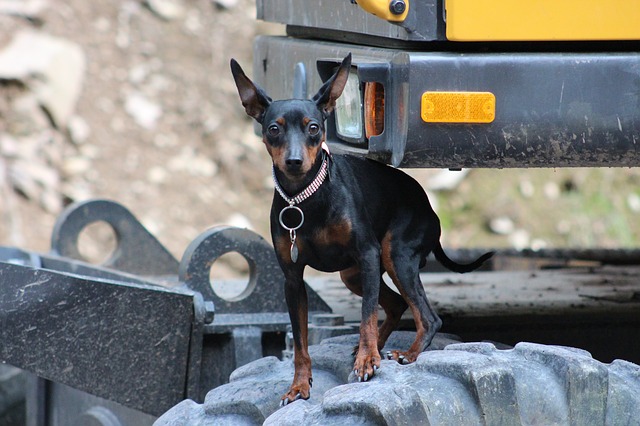
Miniature pinschers have thick anal sacs that secrete lots of liquid.
As these sacs fill up, the dog feels unfordable leading them to rub their behind on the floor or chase their tail.
This often results in injury due to friction as well as the development of rashes (see the video below).
Expressing will help prevent this and lots of other potential complications.
15. Papillon

Papillons, like most other breeds, used the fluids in their anal sacs for marking territory.
The fluids are designed to be released when the dog answers to nature’s call.
With papillons, the glands get easily blocked leading to the secretion of more liquid without a way of elimination.
Failure to express would result in scooting, strong odors, swollen anus, and bloody stools
16. Pembroke Welsh Corgi

Pembroke Welsh Corgi will scoot when their anal sacs are full.
This is usually their way of trying to empty the sacs but once they start scooting, there is little chance that natural excretion will succeed.
If you do not assist them, they will continue scooting due to the increasing itchiness and this eventually hurt them due to the friction or worse still, the sacs will rapture.
17. Pugs
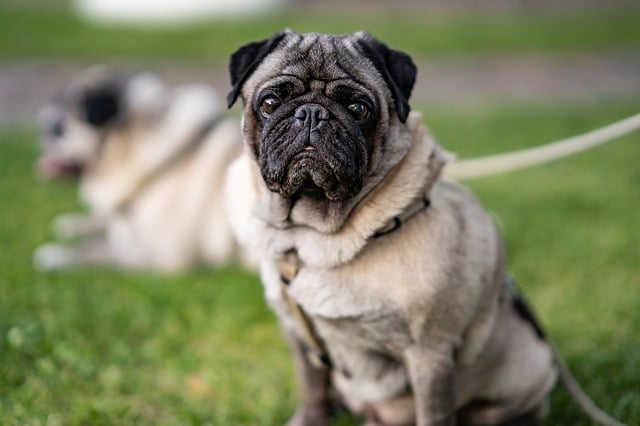
Pugs are adorable and clean breeds but they are also prone to bad odors due to filled-up anal sacs.
As a pet parent, you will need to help your pug express to deal with this nasty odor before it gets too much.
If you have a trained finger, you can do it at home although it is best to have a vet do it to avoid hurting your furry baby.
18. Shih Tzu

If you have a Shi Tzu, then you can locate their anal sacs on the sides of the anus at the 4 o’clock and 8 o’clock positions.
These sacs can fill up with a dark yellow liquid that resembles tan-colored oil.
If your pup doesn’t express, they will have a nasty odor although there are worse problems like getting an abscess.
What Age Do Dogs Need Glands Expressed?
Generally speaking, you shouldn’t express the glands of puppies because they will typically do it naturally without any issues.
But as certain breeds grow older, they may develop anal gland problems and that is when you should start expressing their glands every 3-4 weeks.
If your dog is not among the susceptible breeds, then you should only express their glands when necessary (when they develop an anal gland issue).
However, for the susceptible breeds, it might be a good idea to do it monthly for all adult dogs.
However, if the dog develops issues soon – even as a puppy – then you can start doing it sooner as well.
What Happens If You Don’t Express Your Dog’s Glands?
Failing to express your dog’s anal glands may result in health complications for your doggy.
For instance, the anal glands may develop an abscess that could be painful and result in difficulty in the passing of stool.
Over time, the abscess will then burst and leave behind an open wound that is not only painful, bloody, and smelly, but also infected.
If left unchecked, this could be a long-term issue that will drastically reduce the life quality of your dog as well as expose her to other opportunistic diseases.
Related: Why Does My Dog Still Smell After Her Glands Have Been Expressed?
Parting Thoughts
We have listed the breeds that are most susceptible to anal gland issues above.
If you own a dog from any of these breeds, then you will need to think of expressing their anal glands every month (or every 3-4 weeks).
However, if you own another breed (especially the larger breeds), then they should be expressing their glands naturally without the need for your intervention.
But there is always an exception to the rule, so if your dog develops anal gland issues—no matter the breed—take them to the vet for their glands to be expressed as soon as possible.
As an Amazon Associate, we may receive a small commission from qualifying purchases but at no extra cost to you. Learn more. Amazon and the Amazon logo are trademarks of Amazon.com, Inc, or its affiliates.

